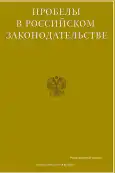Modern Realities of Cybercrime in the Russian Federation
- Authors: Shondirov R.K.1
-
Affiliations:
- Krasnodar University of the Ministry of Internal Affairs of Russia
- Issue: Vol 16, No 5 (2023)
- Pages: 237-241
- Section: Criminal - legal, criminological, administrative and other measures for countering crime in contemporary conditions
- URL: https://journal-vniispk.ru/2072-3164/article/view/250175
- EDN: https://elibrary.ru/QFOEVG
- ID: 250175
Cite item
Abstract
The purpose of this study is to study the state of cybercrime in the digital society and ways to improve the effectiveness of countering these crimes.
In the fight against cybercrime, as well as in the investigation of such acts, there is a problem that has a direct connection with the subject of illegal activity. In society, it is designated as hacking, but not everyone understands the meaning of this term and the essence of the activity of hackers. So, in one of the dictionaries, a hacker is called a person who performs illegal manipulations of various kinds in the field of computer science, and the very activity of this kind forms the composition of criminal and administrative offenses. Cybercriminals actively use the technical imperfection of the equipment to open access to individual computers and obtain confidential information. It is advisable to pay attention to the described problem in countries with developing economies, since they do not have a well-developed system for combating cybercrime as such.
It is concluded that there is a need for the formation of a secure cyberspace. Data exchange should be carried out at the highest possible speeds, while taking into account the volume of traffic. An intensively developing structure for the interaction of organizations and law enforcement agencies should provide for the work of participants at the international level. Implementation of a comprehensive cyberspace security program. At the same time, it should not only devote itself to the subtleties of combating cybercrime, but also teach how to prevent such acts. For a productive fight against cybercrime, it is necessary to have appropriate high-power computing equipment. A platform with a high level of optimization risks not seeing the light at all if legislators do not realize the importance of its development and practical application. Among other things, it is necessary to expand the existing standards and working protocols within the framework of public discussion of the topic under consideration.
Full Text
##article.viewOnOriginalSite##About the authors
Ruslan K. Shondirov
Krasnodar University of the Ministry of Internal Affairs of Russia
Author for correspondence.
Email: rshondirov@mail.ru
Police Major, Lecturer of the Department of Fire Training, North Caucasus Institute for Advanced Studies (branch)
Russian Federation, Nalchik, KBRReferences
- Abazov A.B., Abazova M.V., Fayrushin T.A. Improving the activities of law enforcement agencies to combat cyberterrorism // Journal of Applied Research. 2022. Vol. 1. No. 11. pp. 87-91.
- Bespalova A.I., Lushnikov A.O., Vasina A.V. The main threats to the security of digital space in modern conditions // In the collection: Actual problems of socio-humanitarian and economic knowledge. Collection of scientific papers based on the materials of the V All-Russian scientific conference School of Young Scientists. Saratov, 2022. pp. 87-89.
- Borovikov V.B., Borovikova V.V. Some aspects of criminal law policy in the context of new threats to Russian statehood // Problems of economics and legal practice. 2021. Vol. 17. No. 6. pp. 130-133.
- Gursky V.L. The phenomenon of digital transformation of the economy in the development of society // Belarusian Economic Journal. 2021. No. 3 (96). pp. 4-14.
- Zheludkov M.A., Popov A.M., Dubrovina M.M. Features of countering cybercrime in Russia and foreign countries // Bulletin of the Volgograd Academy of the Ministry of Internal Affairs of Russia. 2018. No. 3 (46). pp. 97-102.
- Zhukov A.Z., Shugunov T.L. Current trends in legal regulation of information security abroad // Gaps in Russian legislation. 2019. No. 3. pp. 224-226.
- Kunitsyn D.V., Aniskin A.I. Cybercrime as part of the shadow economy // Moscow Economic Journal. 2022. Vol. 7. No. 8.
- Tambiev S.A., Teunaev A.S.U. The main directions of activity of operational units of internal affairs bodies on detection and prevention of cybercrimes related to extremist activity // Gaps in Russian legislation. 2022. Vol. 15. No. 5. pp. 139-143.
- Khamurzov A.T. Crime in the field of information and communication technologies as a problem of information society // Gaps in Russian legislation. 2022. Vol. 15. No. 4. pp. 265-269.
- Cherkesov A.Yu. Actual problems of countering cybercrime at the present stage // Journal of Applied Research. 2022. Vol. 2. No. 9. pp. 129-132.
- Shipunova T.V. Crime in the digital society: causes and possibilities of counteraction // In the collection: Social security in the Eurasian space. Materials of the International Scientific Conference. Edited by I.A. Grosheva. Moscow-Tyumen, 2022. pp. 473-480.
Supplementary files








